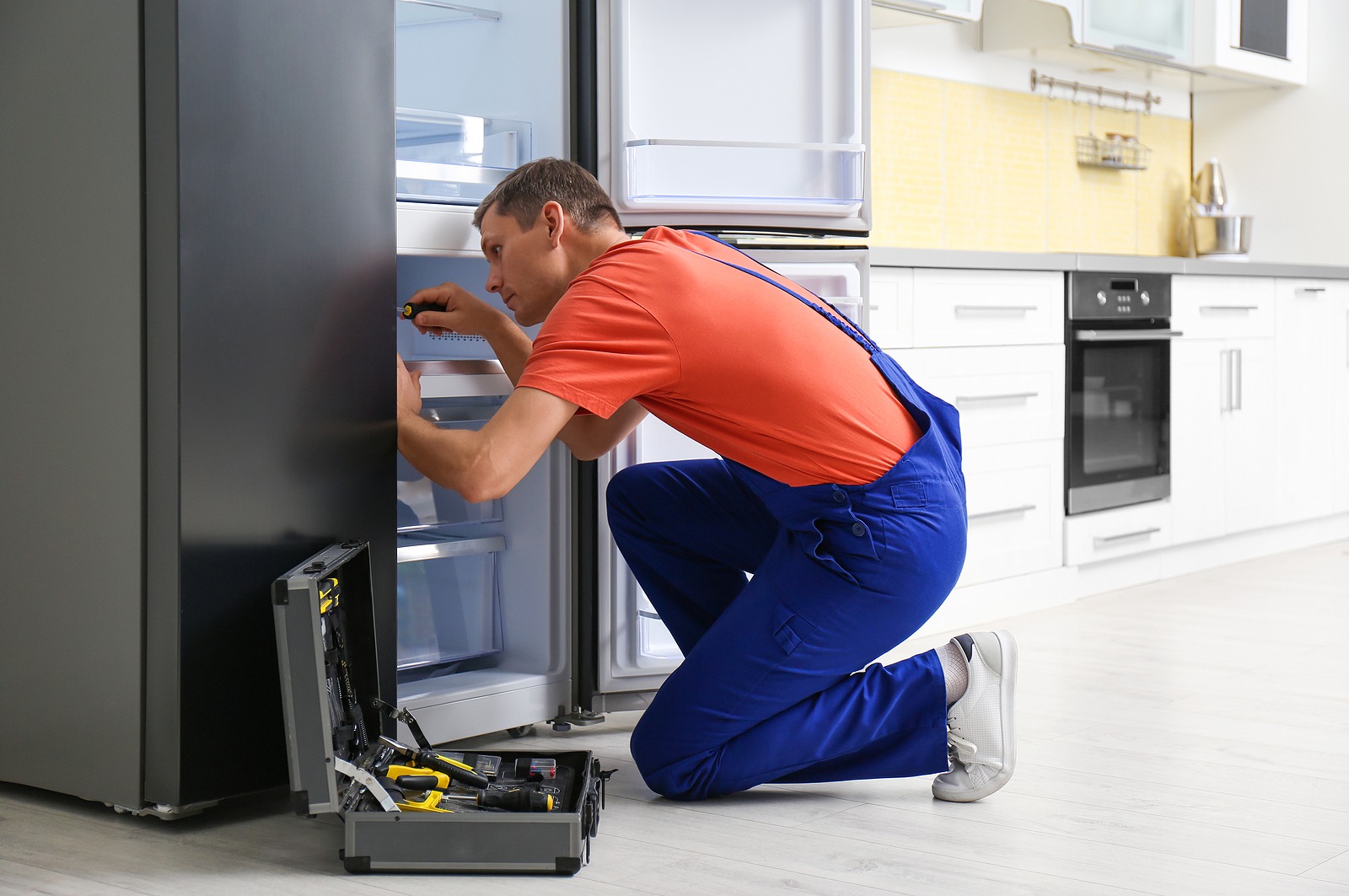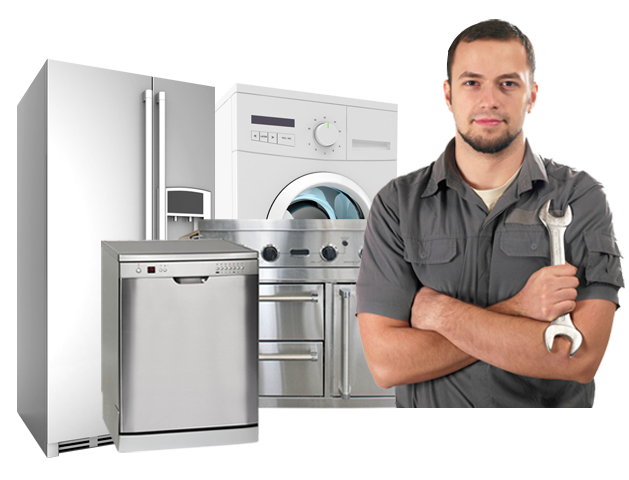Get Rid of Moldy Washer Smell – Maytag Washing machine repair Dependable Refrigeration & Appliance Repair Service
Get Rid of Moldy Washer Smell – Maytag Washing machine repair Dependable Refrigeration & Appliance Repair Service
Blog Article
The Ultimate Guide to Understanding Home Appliance Fixing at Home
When your refrigerator stops cooling or your stove refuses to heat, it can really feel frustrating. Understanding device repair work at home can conserve you time and money. You'll learn to identify symptoms, use necessary devices, and adhere to an organized troubleshooting process. However prior to you start, there are essential security precautions you need to take into consideration. What are one of the most typical troubles, and how can you repair them? Allow's discover the basics.
Common Appliance Troubles and Their Signs and symptoms
When your appliances begin breaking down, it's vital to recognize the indications beforehand. Overlooking them can cause larger concerns and costly repair services. If your fridge isn't cooling appropriately, you may discover cozy spots or condensation creating. This could show a stopping working compressor or a blocked vent.Your dish washer may show troubles through dirty dishes or unusual sounds throughout cycles. If you hear grinding or clanking, it's time to investigate.A washing machine that will not rotate or drain can leave you with soggy laundry, recommending a clogged up drain or a malfunctioning pump.Lastly, if your oven's temperature seems off or it takes forever to pre-heat, you may be handling a malfunctioning thermostat. By remaining sharp to these symptoms, you can resolve problems before they intensify right into significant fixings.
Important Devices for Home Appliance Repair Work
When you're tackling appliance fixings in the house, having the right tools is essential. Fundamental hand tools like screwdrivers and pliers will help you take apart and take care of numerous appliances, while electrical screening devices assure you're functioning securely with circuitry. Let's discuss what you need to begin on your fixing journey.
Standard Hand Devices
Having the right devices is essential for effective appliance repair work at home. Begin with a trusted screwdriver set, including both flathead and Phillips types, as screws are usual in device assembly. Pliers are additionally vital; they assist with gripping, turning, and reducing cables or tiny components. A pair of needle-nose pliers can get to limited places easily. You'll require an excellent flexible wrench for tightening up or loosening nuts and screws. An utility blade is useful for reducing via product packaging or insulation. Don't fail to remember a strong workbench or surface area to securely organize your tools and components. With these fundamental hand devices, you'll be well-prepared to tackle most device repairs that come your means.
Electric Screening Instruments
Along with standard hand devices, electrical testing devices play a crucial function in home appliance fixing. These devices assist you identify electrical issues and warranty appliances function securely. A multimeter is vital; it measures voltage, existing, and resistance, allowing you to identify troubles rapidly. A non-contact voltage tester is an additional essential, allowing you find real-time cords without making direct contact, improving your security. Clamp meters are wonderful for measuring present circulation in cords without separating them, conserving you effort and time. In addition, circuit testers can quickly check if outlets are operating correctly. By utilizing these tools, you'll simplify your troubleshooting process and enhance your fixing abilities, making home appliance maintenance a lot simpler.
Step-by-Step Guide to Diagnosing Device Issues
When your device breaks down, it can be frustrating, yet detecting the problem does not have to be overwhelming. You'll discover to determine typical problems and use reliable fixing methods. Allow's stroll through the actions to get your appliance back in working order.
Usual Appliance Problems

Repairing Strategies Discussed

Repairing Significant Cooking Area Devices: A Closer Look
Have you ever asked yourself exactly how to take on common issues with your kitchen devices? Fixing major cooking area devices like fridges, ovens, and dishwashing machines can be less complicated than you think. Beginning by determining the issue-- whether it's a refrigerator not cooling or a stove that will not warm. Frequently, a simple reset or inspecting the source of power can solve the issue.For refrigerators, tidy the condenser coils and examine the door seals. If your oven's not heating, evaluate the burner and thermostat. Dish washers could just require a tidy filter or a reset to get them back at work. Constantly unplug the device before diving right into repair services to guarantee your safety.Don' t neglect to consult the individual manual for specific troubleshooting suggestions connected to your model. With a little bit of patience and the right devices, you can with confidence take on device fixings and save money while doing so!

Repairing Washing Devices: Tips and Techniques
When your washing home appliances start acting up, it can really feel overwhelming, yet repairing them doesn't have to be an inconvenience. Begin by examining the power supply. Verify the appliance is plugged in and the outlet is operating. Next off, examine the door or cover button; a faulty switch can stop the maker from operating.For washing machines, if it's not spinning, look for out of balance tons. Rearranging the clothes may address the concern. If your dryer isn't heating, clean the lint filter and inspect the vent for blockages.Listen for uncommon noises; they can indicate a problem. If your device is leaking, inspect the pipes for cracks or loose links. File any error codes shown on digital displays, as they can assist you in recognizing the concern. Seek advice from the individual guidebook for certain repairing tips associated to your version.
Safety Preventative Measures to Take Throughout Repair works
Prior to you start any type of appliance repair work, it's vital to prioritize safety to protect against mishaps or injuries. First, unplug the device or transform off the breaker to ensure no power reaches it while you function. Usage protected devices to decrease the threat of electric shock. Use security goggles and gloves to shield yourself from sharp edges or debris (Dryer repair Oro Valley Dependable Refrigeration & Appliance Repair Service).Make particular your workspace is neat and well-lit, so you can see what you're doing. Maintain children and family pets far from the area to avoid interruptions and prospective hazards. If you're managing gas appliances, be extra cautious; look for leaks before proceeding.Take your time, and don't hurry via repairs. If you really feel uncertain about any kind of step, it's much better to stop briefly and research than to presume. Following these preventative measures will certainly help produce a much safer setting for your DIY appliance fixing task
When to Call a Specialist for Help
How do you understand if it's time to contact a specialist for device repairs? If you have actually tried fundamental troubleshooting without success, it's a clear indicator. If your home appliance still will not start or reveals unusual sounds after resetting it, do not hesitate to look for expert help.When you observe leakages, smoke, or burning scents, prioritize safety and security and call a professional promptly. These issues can result in more substantial damages or pose threats to your home.Also, if your appliance is under guarantee, calling an expert is often the most effective route. They can ensure that repair work won't invalidate your warranty, saving you cash in the long run.Finally, if you're unsure or uneasy with intricate repairs, it's wise to leave it to the specialists. Bear in mind, taking on challenging problems without the appropriate competence can lead to expensive mistakes. Depend on an expert when doubtful!
Regularly Asked Inquiries
Just How Can I Prevent Home Appliance Troubles in the Future?
To avoid home appliance issues in the future, you need to perform routine upkeep, look for damage, tidy filters, and avoid overloading. Staying proactive will certainly help get more info expand their life expectancy and keep them running smoothly.
What Are the A Lot Of Usual Do It Yourself Appliance Repair Mistakes?
You may forget security precautions, miss repairing actions, or utilize inaccurate tools when trying DIY home appliance repairs. Hurrying the procedure or overlooking manufacturer standards can result in even more significant problems and expensive errors. Keep patient and notified!
How Do I Know if a Part Demands Substitute?
You can inform if a component requires substitute by looking for uncommon sounds, leaks, or irregular performance. If the appliance battles to run correctly or shows noticeable damage, it's likely time for a replacement.
Can I Utilize Generic Parts for Home Appliance Repairs?
Yes, you can use common parts for device repairs, but ascertain they're suitable - Dependable Refrigeration & Appliance Repair Service Washing Machine Repair. Common parts may save you money, but they can affect efficiency or durability, so consider your alternatives very carefully before choosing
What Guarantees Cover Device Repair Works?
The majority of device warranties cover repair services for making problems, however they often exclude damage from misuse. Examine your guarantee terms thoroughly, as some may call for utilizing qualified technicians and original components for insurance coverage to continue to be legitimate.
Report this page